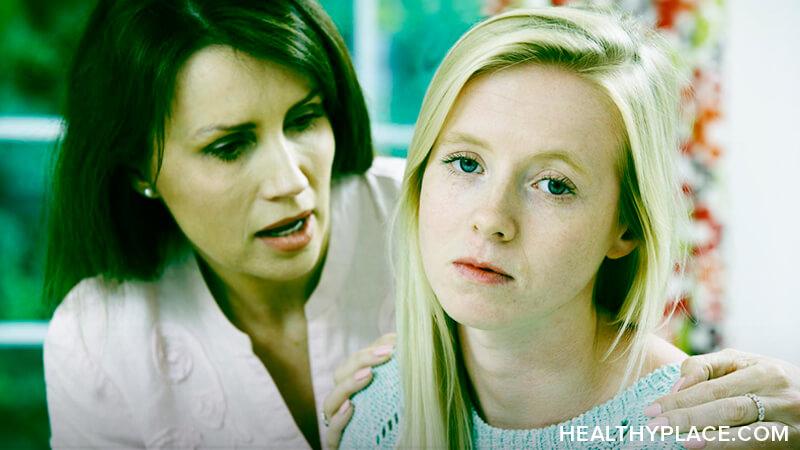Coping With Hurtful Remarks When You Have Depression

The challenge of coping with our depression can be more difficult when people make hurtful remarks to us. Often these hurtful remarks will fuel our negative thoughts and potentially send us into a major depressive episode. What are some of the comments we may hear? How can we use coping skills to keep the harmful comments of others from worsening our depression?
I've heard quite a few remarks that I find hurtful ("What Is Stigma?"). I'm going to list a few here, along with some of the skills I use to cope with how they affect me and my depression.
What Kind of Hurtful Remarks May Fuel Depression?
- Hearing people make jokes about "crazy" people or "mental hospitals." It's a matter of personal choice whether or not we choose to confront the person who makes these types of hurtful comments and jokes. For me, it depends on what kind of phase I'm in with my depression at the time. Sometimes, it's better for my mental health to ignore it and just reaffirm to myself that depression is a medical condition for which I am being treated. Then I just leave the situation as soon as possible, go home, and practice plenty of self-care. Other times, I feel strong enough to speak up for myself and others with mental illness. I will firmly, yet gently (well, most of the time), educate the person who makes the hurtful remarks. Speaking to my therapist has also proven beneficial to me in these situations, as she can direct me to the truths of what I know, but can sometimes forget, when I'm struggling with my thoughts because of others' hurtful remarks.
- When I'm told depression is caused by "demons" or "demonic oppression." Yes, friends, it's the year 2019. Also, yes, I've heard these hurtful remarks. Honestly, the biggest part of me just wants to laugh at the ignorance and lack of education these statements contain; often, that's exactly what I do. It's one of my favorite coping mechanisms: laughter. With that being said, however, this kind of hurtful thought and stigma of mental illness is truly detrimental to those of us diagnosed with mental illness and can be deadly to anyone who wants to seek help but is afraid to do so because of the fear they will be labeled as "demon-possessed" or "demon-oppressed." We cope with this through education. We can talk with and get information from a psychiatrist, who is educated in this field, to show both ourselves and others what actually causes depression. We can share our stories. We can share facts. We cannot be silent about this one.
- Being told "cheer up," "focus on the positive," "it could be worse," or "snap out of it." I could go on and on with platitudes and self-righteous remarks most of us with depression have heard over and over again. These types of comments invalidate the reality of our illness and can further our tendency to isolate ourselves; these hurtful remarks make us feel as if we are a burden to others and that no one understands or cares about us. I've learned to cope with these comments by no longer discussing my depression with people who say these kinds of things to me. One important coping skill for us to learn is knowing with whom we can share our stories and struggles and knowing who is not worthy to know us that closely or deeply. Sometimes we have to accept that people are not open to being educated about depression.
What hurtful remarks about depression have you heard? How have you chosen to cope with these comments?
See also: "How to Fight Depression Stigma"
APA Reference
Smith, J.
(2019, February 6). Coping With Hurtful Remarks When You Have Depression, HealthyPlace. Retrieved
on 2026, March 5 from https://www.healthyplace.com/blogs/copingwithdepression/2019/2/coping-with-hurtful-remarks-when-you-have-depression